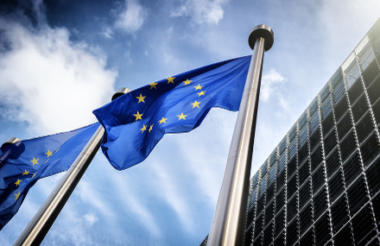Which charities have got involved in the European Union referendum debate? And what do they think?
Yesterday afternoon we published a blog from the minister for civil society in which he urged charities to back the Remain campaign.
“For civil society organisations, the prospect of the UK voting to leave the European Union constitutes a leap in the dark – particularly with regard to the economic implications for the sector post-Brexit,” Rob Wilson said.
But did he need to bother? As far as we can see most charities, and those that work in charities judging by my Twitter feed during the televised debates, quite like the European Union.
While NCVO and Acevo have stopped just short of taking a position, both have welcomed the minister’s intervention yesterday.
Commenting on the piece Sir Stuart Etherington, chief executive of NCVO, said that Wilson had “raised important issues” and urged charities to “consider on the basis of the facts what is in the interests of their beneficiaries”.
NCVO previously published a discussion paper to help charities work out what the implications of staying or leaving would be for their charity.
Acevo has been more outspoken on the subject and has previously called on the Leave campaign to explain how it would make up for the sector losing out on £200m of EU funding. Responding to the minister’s piece, Asheem Singh, interim chief executive at Acevo, said: “It is not for me to suggest how people should vote but we must be clear of the potential harmful social impact of Brexit and how things currently stand.”
Charities that want to stay in the EU
While many charities are understandably reluctant to tell their supporters how to vote, a number of international aid and conservation charities have indicated that they strongly favour remaining part of the EU.
RSPB, WWF-UK and the Wildlife Trusts contributed to an Institute for European Environmental Policy research paper on the impact of leaving the EU and concluded that it was better to stay in.
RSPB also challenged both campaigns to put their case, which it has shared on its website, before concluding that remaining in the EU would be better for nature.
Friends of the Earth and Greenpeace have also campaigned to stay in the EU, despite facing criticism from the Telegraph for doing so.
In February the heads of a number of international aid charities signed a letter backing the Remain campaign in a personal capacity.
Girish Menon, chief executive of ActionAid UK, posted a blog on the charity’s website earlier this month in support of staying in the EU.
“We have analysed the available information (download our 'EU and international development' pdf here), and have taken the view that, on balance, a decision for the UK to leave the EU could have a negative impact on ActionAid’s UK’s mission to eradicate poverty and injustice,” he said.
Sitting on the fence
A number of charities have also been active in encouraging people to register and vote, as well as making sure that both sides put their arguments across, without necessarily venturing an opinion one way or the other.
The Papworth Trust has produced a report on Disability and the European Union to help people understand the background and the arguments. Mencap has also produced an easy read guide to the referendum to explain the issues.
Eslewhere the Fawcett Society hosted a debate to engage women in the arguments after finding that both campaigns had failed to resonate with women. It posted the full debate on YouTube and guest blogs for each case on its website.
Leave?
Despite a comprehensive search of the internet, and even appealing on Twitter for charities in favour of Brexit, we have been unable to find any charity actively making the case to leave the EU.
It’s not really a surprise – those charities that have been vocal in their support have said so because they found that their beneficiaries directly benefit from the EU.
And much of the case for leaving the EU is based on a negative reaction to migration - something the charity sector is unlikely to take on board.
See also










